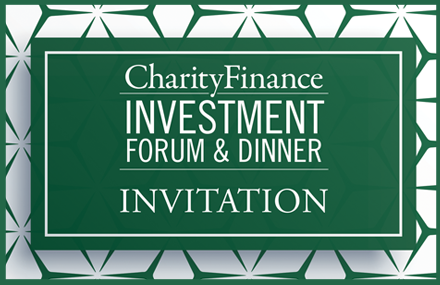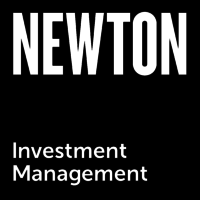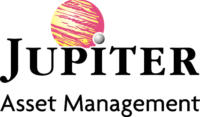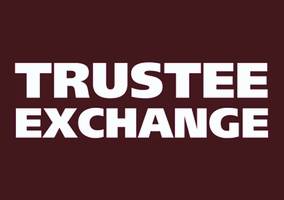The 2020 Charity Finance Investment forum will be returning on 2-3 March 2020. The pre-forum reception and dinner provides the perfect setting in which to network with peers from other charities. This is complemented by a full day's programme of expert sessions giving insight analysis into a range of investment strategies and crucial investment topics.
Designed for finance directors, chairs, trustees and chief executives responsible for investment portfolios, the forum helps charities shape their strategies and maximise returns.
The Charity Investment Forum is an invitiation only event for charities with investment assets in excess of £5m. If you are interested in attending, please contact our events team on 020 7819 1200 or email [email protected]
Programme
02 March 2020
-
3.00PM - 5.00PMArrive and check in
-
5.00PM - 6.20PMNetworking drinks reception
-
6.20PM - 6.30PMWelcome address - Tristan Blythe, editor, Charity Finance
-
6.30PM - 7.00PMOpening keynote - Sally Bundock, journalist and presenter
-
7.00PM - 9.00PMDinner
-
9.00PM - 11.00PMInformal networking
03 March 2020
-
7.00AM - 8.30AMBreakfast
-
8.30AM - 9.10AM1A. What investors and companies are doing to find, fix, report and prevent slavery
On the 28th August 1883 the Slavery Abolition Act received royal assent. 136 years later, and five years after the UK Government’s Modern Slavery Act came into force, 25 million people, more than the population of Australia, live in a state of slavery or forced labour around the world. This is a very human tragedy. It is also an issue for business, the economy and investors. In this session we will give you a ‘behind-the-scenes’ look at how CCLA has gone about building a responsible investment campaign. We will share what we’re learning, as well as explore the principles and politics involved in such work, and the consequences for the investment management industry.
“You can choose to look the other way but never again can you say that you never knew.” William Wilberforce
Peter Hugh Smith, Chief Executive, CCLA -
8.30AM - 9.10AM1B. To divest or not to divest, that is the question... How are charity trustees thinking about climate change?How are we thinking about climate change? And what are the implications of divesting from fossil fuels as opposed to engaging with the oil and gas sector?
Victoria Barron, Responsible investment analyst, Netwon Investment Management -
8.30AM - 9.10AM1C. Sustainability isn't enough - pushing for progressHow can large charities make a positive societal impact with their investments?
Are you making the most of your charity's assets? As sustainable investment continues to evolve, we are helping an increasing number of charities to maximise the impact of their investments – using our shareholder power to influence change and push for progress.
This session will highlight some of the ways your charity can go further than sustainability, and how your organisation can invest with impact.Kate Rogers, Co-head of Charities, Cazenove -
8.30AM - 9.10AM1D. How to select an investment managerIn this session we will distil the main points you’ll need to consider when selecting the right investment manager for your charity. There are a lot of decisions to make before you start your search. Active or passive? Pooled or segregated? Income or total return?
It’s a long process for a charity to change investment manager so it’s important you appoint one you can see yourself working with for the long term. You’ll leave this session better equipped to make this important decision.
Elliot Bancroft, Investment Director, Rathbone Investment Management, Olivia Merrick, Investment Manager, Rathbone Investment Management -
8.30AM - 9.10AM1E. How does climate change influence the investment landscape?Climate change is a mega trend that is likely to influence money flows between investments that represent environmental, social and governance factors. Investment managers need to distinguish between best-in-class companies and companies that are improving on the ESG front. We look at sectors that are likely to benefit from bias in the market towards ESG as an investment theme.Daniel Casali, Head of Investment Strategy, Smith & Williamson
-
8.30AM - 9.10AM1F. Assessing the liquidity profile of your endowment portfolio: How to combat the illusion of liquidityA practical guide to thinking about your endowment’s liquidity profile. Whilst charities often have a long-term investment horizon, many must also meet periodic spending requirements. This conflict means an awareness of the charity investment portfolio’s liquidity is vital. Yet different financial assets and the structures in which they are held each have their own liquidity profile, making the assessment of true liquidity very difficult, even in a normal market environment. History provides us with many examples where the spectre of illiquidity precipitated a crisis. How do markets currently look in this aspect, and how should a charity’s portfolio be structured to protect against a liquidity event?Hermione Davies, Invesmtent Director, Ruffer, Oliver Shale, Senior Investment Associate, Ruffer
-
9.20AM - 10.00AMTopic A - Session 2: To be confirmedTopic A - Session 2: To be confirmed
-
10.00AM - 10.40AMRefreshment break and networking
-
10.40AM - 11.20AM3A. Design laid bare - The importance of design in an investment solution that can prosper in good, bad and uncertain timesThere can be few people responsible for charity investments who have not sensed the ground shifting under their feet in the past year. The reaction of markets to the political surprises in the UK and abroad creates a challenging tension for those with long-term funds to invest. This session will discuss the key design features of CCLA’s multi-asset investment approach. What are the design features you can and can't control. Delegates will also get an insight into our investment outlook and the themes we believe will be critical in the coming months.Members of the CCLA investment team and James Bevan, Chief Investment Officer, CCLA
-
10.40AM - 11.20AM3B. Why trustees should focus on delivering real returns for their investment portfolios as opposed to trying to beat composite benchmarksOften charity trustees are comforted by the fact that their investment portfolios are being managed to a composite benchmark. It is a yardstick against which they believe they can assess whether a fund manager is performing well or not. But is this the right approach to have? Does it align with the investment objectives of the charity, namely to preserve and grow the real value of its assets?
In the Rothschild & Co presentation we will discuss more commonly used benchmarks, the potential pitfalls of using them, and what we believe you should be doing instead.
Nandu Patel, Managing Director, Head of Charities, Rothschild & Co Wealth Management, Andrew Blair, Director, Charities, Rothschild & Co Wealth Management -
10.40AM - 11.20AM3C. Modern Monetary Theory (MMT) - the Magic Money Tree?After more than a decade of easy monetary policy with interest rates maintained at minimal levels, the financial system has seemingly been stabilised. However, the outsized positive impact of these policies on asset owners through higher market valuations has left many within society feeling overlooked. Policy makers must now reflect on the growing polarization of the socio-economic order as they consider future policy. Moreover, with monetary policy as a tool now exhausted, the authorities are increasingly reaching for a fiscal response to prepare for the next economic downturn. ‘Modern monetary theory’ or MMT is at the heart of this debate over the next stage of potential policy intervention. While taxes and debt raises have been the traditional approach to funding government spending, MMT advocates for ‘money creation’ by the central bank. What could this notion mean for the economy, asset prices and importantly the future of endowment assets?
Christopher Querée, Investment Director, Head of Charities, Ruffer, Jamie Dannhauser, Economist, Ruffer -
10.40AM - 11.20AM3D. Responsible capitalism - reconnecting with the past to secure its futureCapitalism has been the dominant force driving global society, but it faces many and varied challenges. From environmentalism to populism, forces have arisen expressing a powerful critique. How can capitalism respond? Andy and Victoria will consider how the crucial factor currently missing is the notion of purpose – exactly why were companies allowed to be set up in the first place? The answer is for public benefit. If capitalism is to survive the current critique, it must reconnect with this societal purpose. Investors are waking up to this new reality, and asking companies to develop business models for them to invest in which deliver value for all stakeholders – staff, investors, customers and community – both local and global. Investing in such a way – through an ‘ESG’ lens – has great potential to drive both long term economic growth and deliver on global goals for truly sustainable long term value creation.
Andrew Pitt, Head of Charities, Rathbone Investment Management, Victoria Hoskins, Investment Director, Rathbone Greenbank Investments -
10.40AM - 11.20AM3E. Evolution of responsible investment policies - past, present and futureTen years ago, the role of a charity’s investment committee was simple – state that you invest in line with the ethos of your organisation and potentially avoid direct investment in certain sin sectors. In 2020, the world is different. Maintaining and enhancing your organisation’s reputation can be just as important as proactive fundraising.
In this session, Aberdeen Standard Capital reflects on the changing world of responsible investment policies. Through a series of case studies and real world examples, the team will look at how different charities are ensuring that their assets are invested in line with their own charitable principles, and consider ethical and impactful investing.Julie Hutchison, Charities Specialist, Aberdeen Standard Capital, Laurence Gagen, Head of Charities, Aberdeen Standard Capital -
10.40AM - 11.20AM3F. Trump, Twitter and TradeAs social media and data continue to increasingly influence and drive what goes on in global markets and the political sphere, we take a whistle stop tour around the world to see where the opportunities reside and show how we are harnessing data science to give our charity clients an edge.Gavin Marriott, Investment Director, Global and International Equities, Schroders
-
11.30AM - 12.10PMTopic B - Session 2: To be confirmedTopic B - Session 2: To be confirmed
-
12.25PM - 1.05PM5A. The hunting of the Snark - CCLA's chief investment officer reflects on managing charity funds at CCLA over the past 15 years
“An impossible voyage with an improbable crew to find an inconceivable creature” is how the storyline of Lewis Carol’s poem, The Hunting of the Snark, has been described. The characters set off to cross the sea guided by the Bellman’s map of the Ocean, a blank sheet of paper. The hunting party arrive in a strange land, and the Bellman tells them the signs by which a Snark can be identified, but he warns them that some Snarks are highly dangerous Boojums and, if they find one of them, they’ll vanish. Since 2006, James Bevan has been an influential figure in CCLA’s remarkable journey. In this session, James will talk candidly about the elaborate and costly chase of an elusive quarry — an ethical, sustainable, high yielding investment return for charity investors. Too often the quarry proves to be non-existent for charity investors, and the exercise a great disappointment; though the hunt itself may have been energising and entertaining for the investment manager. He will also explore why it is far easier to order a search for ideal solutions than to actually discover them. We look forward to having delegates share their experiences of engaging with the investment management industry, too.
In conversation with: James Bevan, Chief Investment Officer, CCLA
-
12.25PM - 1.05PM5B. The physics of investing
In the modern world of finance, complex dynamics and interactions have made it increasingly difficult for investors to understand why markets and economies develop in the way that they do. Often it is useful to refer to the disciplines of physics to provide explanations. One can observe the formation of bubbles, the collapse of a pile of sand or the boiling of a kettle and find parallels in markets. If you have ever wondered why it’s impossible to reach Heathrow at 8am precisely in a car and how that relates to the difficulty of reaching investment objectives, then this talk will be right up your street. And you will gain a greater understanding of the forces driving markets today.
John Wyn-Evans, Head of Investment Strategy, Investec Wealth & Investment
-
12.25PM - 1.05PM5C. The Evolution of ESG in alternative asset classes
Whilst ESG has long been a key focus for charity investors, the speed and intensity by which the wider investment community has adopted ESG in recent years has been remarkable. The latest PRI Report shows that there are now over 2,300 UN PRI signatories who collectively manage assets of over $86tn. What’s exciting about the ESG movement is that it’s a market-led revolution and as ESG data has improved, investors have greater ability to thoughtfully allocate capital to businesses who truly embrace their environmental and social responsibilities. However, the availability of data is just one of many reasons why ESG has primarily been focused on traditional, liquid markets such as equities and bonds. The progress in alternative asset classes has been slower.
What are the options for investors who want to embrace ESG throughout the portfolio whilst also maintaining exposure to diversified sources of returns? In this session, we will explore ESG developments in asset classes such as hedge funds, private equity and infrastructure and their accessibility for charity investorsChris Kavanagh, Co-head, Charity Invesment Group, Goldman Sachs -
12.25PM - 1.05PM5D. Active high yield equity investing - why fear can be your friend
As established providers of income focused investment strategies, we understand that charities remain under pressure to grow income streams ahead of inflation. Ensuring that the real purchasing power of income is protected enables charities to safeguard and grow both grant making and service provision activities, and to build sustainable futures.
So, what to do when fear is gripping markets? In this session, we aim to set these risks in proper context. ‘Safer’ assets like cash and gilts offer negative real returns, whereas equities continue to provide above-inflation income growth. We will explain how to manage a portfolio targeting high yielding equities and demonstrate how a disciplined commitment to this process can produce compelling results, both for income and total return.
Richard Macey, Director of Charities, M&G Investments, Michael Stiasny, Fund Manager, M&G Investments
-
12.25PM - 1.05PM5E. Global ESG investmentIn 2020, all investment managers talk about incorporating ESG principles throughout the investment process. But what does this actually mean? Are they making a difference?
In this interactive session, Aberdeen Standard Investments' ESG Team look at what it means to be a responsible steward of client assets and bring to life what ESG research involves, how they engage with companies, how they vote and, most importantly, how they bring about change.
Jamie Govan, Senior ESG Invesments Manager, Aberdeen Standard Investments -
12.25PM - 1.05PM5F. Generating income and growth in a low return environment
After a decade of strong returns across the investment landscape, returns are likely to be lower going forward. Charities still need to earn a decent level of income while maintaining (and preferably growing) their capital. A new approach is needed to avoid disappointment. We will explain how a more active, flexible approach can provide better outcomes in a low return world, while still taking a careful and disciplined approach to risk. The session will cover philosophy, process, performance and positioning against the current market outlook.
Matthew Morgan, Product Specialist, Multi Asset, Jupiter Asset Management
-
1.15PM - 2.00PMStarters served + lunchtime address - leuan Evans, former Rugby Union playerStarters served + lunchtime address - leuan Evans, former Rugby Union player
-
2.00PM - 3.00PMLunch & Networking
Speakers
-
Sally Bundock
President Trump, Brexit, the global financial crisis, the eurozone debt crisis and the hyper-volatile financial markets – that’s just a snapshot of what’s been keeping Sally Bundock on her toes in recent months and years.
There is rarely a dull moment covering news, business and finance at the BBC, and Sally has been on the job for more than 20 years.
From Monday to Thursday, her day begins with presenting The Briefing on BBC1, BBC News Channel and BBC World News. Sally is the face of the one-hour live programme that briefs the audience on the day ahead, covering the latest news, business and sport with a global audience of more than 100 million viewers.
She also recently launched the BBC’s flagship business programme, Work Life, which airs week-days on BBC News Channel and BBC World News. It’s a packed programme that covers all the key business stories, gets the inside track from the world’s leading CEOs and discusses the latest news and ideas to benefit work-life balance.
Sally’s job often takes her around the world where she covers events such as the World Economic Forum in Davos, Switzerland, G20 summits and historic EU summits.
-
Ieuan Evans MBE
Ieuan is a former British Lion and captain of Wales Rugby team. He was educated at Salford University where he obtained a B.A. in Geography and was later awarded an honorary M.A. He has also been awarded a Fellowship of the University of Wales, Cardiff, and received an MBE in 1996 for services to sport in general and Rugby Football in particular.
After leaving University, Ieuan worked for a short period for the National Trust and then for a number of years for the Bank of Wales, whilst continuing with an amateur rugby career. He turned to full time rugby professionally in 1996 and played with Llanelli Rugby Football Club and Bath Rugby Football Club, where he won a European Cup Winners Medal.
At international level, he held almost every record in Welsh rugby – a record, including breaking 72 caps for Wales, playing 28 games as captain and the most tries in a game. He has scored 33 tries for his country.
He has played in three World Cups, has made seven appearances for the British Lions, and is a member of the elite band of Triple Lions Tourists, touring in Australia 1989, New Zealand 1993 and South Africa 1997.
What to expect at the Forum?
- Welcome drinks reception
- Formal 3 course dinner
- After dinner networking reception
- Opportunity to network with leading sector professionals


























